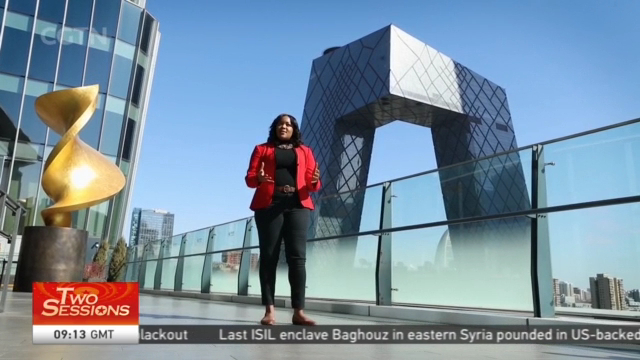
18:24, 12-Mar-2019
CGTN Observes: Fueling growth with innovation
Updated
18:20, 15-Mar-2019
02:23

During this year's Two Sessions political season, CGTN anchors are presenting their observations on important issues facing China. Today, we focus on technology and innovation.
UCHE OKORONKWO BEIJING China is a hive of technology. It is home to world-class companies that are quite frankly giving silicon valley a run for its money, not just in size and growth, but most significantly in innovation.
To give you just a few examples, Alibaba is the world's largest e-commerce company. It has revolutionized the way small businesses sell, by creating a sophisticated online ecosystem. TenCent's We Chat application has surpassed Facebook in value, offering a myriad of services to its users. Huawei has become a world leader in networking equipment and smartphones, dominating markets in the west and in Africa.
What I have observed is that China's government is pretty serious about fuelling that innovation as a major driver of its economy.
At the annual 2019 Two Sessions meetings, the government stressed that one of its top tasks would be pursuing innovation driven development, through new regulation, Internet-plus initiatives and a new science and tech innovation board amongst others. Its aim is to take a global lead in AI development by boosting investment in technologies, and training more professionals in the country.
What I also observed is a louder call from China's private sector to take advantage of the NPC's decision to cut taxes further this year, to churn money back into innovation. They say Chinese firms need to shake off their reliance on foreign technology. In the agriculture sector, enterprises from smaller cities say the next growth point for the internet and tech firms will be in rural areas. As technology emerges as a new tool for farmers, companies building platforms to enable trade in agriculture would thrive.
The overall strategy seems to focus on one main driving force: a major boost in collaboration between the government, the private sector and research institutions.
UO, CGTN, BJ, China.

SITEMAP
Copyright © 2018 CGTN. Beijing ICP prepared NO.16065310-3
Copyright © 2018 CGTN. Beijing ICP prepared NO.16065310-3